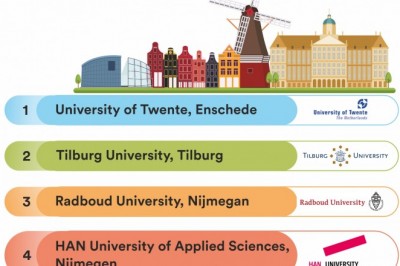views

How to get an entry-level job in IT?
Technology is omnipresent, and the tech industry is booming. Automated cars, computers, smartphones, social networking sites, and gaming systems are all powered by it, and so are the employment opportunities.
Information technology and computer technology jobs are expected to grow by 11% between 2019 and 2029, according to the Bureau of Labor Statistics. This rate of growth is much higher than the expected growth up to 4% for all jobs.
It’s fair to assume that technology-related careers are here to stay, and they’re a great alternative for job seekers. The good news is that, contrary to popular belief, not all software developers have a computer science degree. Self-taught programmers account for 66% of all programmers. Even people with a formal technical education rely on continuous learning to keep their skills sharp, which demands enthusiasm and hard work rather than formal schooling. True or not, if you work towards it appropriately, you can still land positions for which you are technically underqualified. Follow these steps by ITPathfinder and you will get your foot in the IT industry with little to zero hurdles.
Create A Roadmap
The IT industry has a plethora of jobs. There are computer programmers, software systems developers, computer support specialists, computer hardware engineers, computer & information research scientists, big data engineers, web developers, software systems developers, etc. Some of the jobs in IT require you to get a degree from a college or a university while others ask for certifications or a practical training course.
If you’re interested in working in IT, it’s a good idea to understand the requirements and what kinds of jobs are available. A good first step is to conduct research to familiarize yourself with the IT industry. There are numerous YouTubers, podcasts, discussion websites (such as Reddit or Quora), and articles dedicated to teaching you IT skills and helping in identifying which IT job might be a good fit for you.
Try making a list of jobs that you are interested in. Are you interested in assisting an organization’s computer networks to run smoothly, or in developing websites? What types of organizations pique your interest? What jobs do you think you’d be interested in? This can help you narrow down your job search. It will also familiarize you with some of the terminologies you will encounter throughout the process.
Enroll In Online Classes
We now live in times where almost everything is taught online. Treehouse, Udemy, and Alison are just some of the many sites that provide low-cost courses created by industry experts. These classes can be scheduled around your other activities and with no time limitations.
Many platforms have a supportive community of users who are all trying to improve their talents in the same way. Knowing that you can get comments on your efforts from a colleague or an online friend can help you learn faster.
Examine Your Previous Work Experience (If Any) And Transfer It To The IT Industry.
When you first decide to seek a new job in IT, it’s critical to assess your previous work experience or volunteering experiences in college or university. Although it may appear that you lack the talents stated in job advertising, “soft skills” can be unexpectedly valuable, and many skills similar are transferable and necessary in IT positions.
Qualities like communication, customer support, knowledge of Microsoft Office, and other basic talents, to name a few, might be a great boost to your CV if you’re hoping to start in a help desk position, a common entry-level IT role. You may discover a treasure of applicable skills by carefully considering your previous employment through the prism of the role you’d like to get.
Make Use Of The Resources Available At Your School
If you’re a recent graduate, see if your high school or college has any options for job placement. Many IT firms contact colleges to recruit fresh graduates. Meeting with a career counselor in your college or university or professionally is an excellent approach to learn about current job openings. They can also assist you with your application documents, such as a cover letter and resume.
Search For Jobs Where You Can Share Your Knowledge And Skills
Even if your technical skills aren’t the best, knowing part of the business could go a long way in making you a productive employee right away. While you may not have any direct expertise with computers and networks, there are IT workers in every business. If you have years of expertise in automobiles, for example, applying for an IT position at a car dealership may be beneficial. You’ll still have to work your way up from the bottom, but it could be an excellent opportunity to earn your first year or two of IT experience.
Don’t Be Afraid To Start At The Bottom
In your previous industry, you may be a supervisor or an experienced professional, or you are just a college lad who just graduated, prepare yourself to start at the bottom and work your way up. Starting at the bottom of the ladder will provide you with valuable experience as you advance to more difficult positions.
Overall, starting a career in IT without any expertise is not impossible. However, many people are still hesitant to enter the IT field. By arming yourself with the correct tools and knowledge, you can considerably improve your chances of launching a long-term career in technology.
Making a tough judgment like starting a new career requires assistance, and you must have someone to assist you. Hence, ITPathfinder has specialists in the field to help you through this process. Their goal is to gain a comprehensive understanding of your circumstance in order to assist you in building the right option available. They do it by examining your previous experience, understanding your specified situation, and comprehending your personal goals. If you decide that the IT profession is suitable for you, they will look for any grants you may be eligible for and create a customized IT certification curriculum that fits your calendar.
Are you curious about what it’s like to meet with a Career Training Consultant and what you’ll learn from a one-on-one information session? Please get in touch with us if you’d like to learn more.













